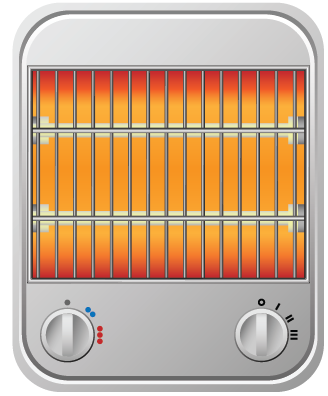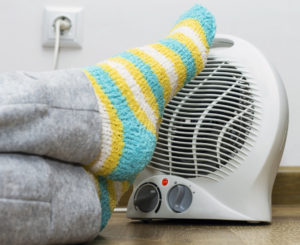Space heaters are generally inexpensive, portable, and easy to operate. They provide heat quickly & directly. For many of our customers, space heaters are an essential part of staying warm during the cooler months of the year.
But, according to the National Fire Prevention Association, space heaters account for 43% of home heating fires and 85% of associated deaths. More than 65,000 home fires are attributed to heating equipment each year. Unvented, combustion-based space heaters have asphyxiated homeowners or led to explosions.
Safety should always be a top consideration when using space heaters. Here are some tips for keeping your home safe and warm when it’s cold outside:
- Make sure your space heater has the label showing that it is listed by a recognized testing laboratory.
- Before using any space heater, read the manufacturer’s instructions and warning labels carefully.
- Inspect heaters for cracked or broken plugs or loose connections before each use. If frayed, worn or damaged, do not use the heater.
- Never leave a space heater unattended. Turn it off when you’re leaving a room or going to sleep, and don’t let pets or children play too close to a space heater.
- Space heaters are only meant to provide supplemental heat and should never be used to warm bedding, cook food, dry clothing or thaw pipes.
- Install smoke alarms on every floor of your home and outside all sleeping areas and test them once a month.
- Proper placement of space heaters is critical. Heaters must be kept at least three feet away from anything that can burn, including papers, clothing and rugs.
- Locate space heaters out of high traffic areas and doorways where they may pose a tripping hazard.
- Plug space heaters directly into a wall outlet. Do not use an extension cord or power strip, which could overheat and result in a fire. Do not plug any other electrical devices into the same outlet as the heater.
- Place space heaters on level, flat surfaces. Never place heaters on cabinets, tables, furniture, or carpet, which can overheat and start a fire.
- Always unplug and safely store the heater when it is not in use.
- The US Department of Energy recommends buying UL-tested, thermostatically controlled units, with tip-over safety switches that will automatically shut off the heater if knocked over.

